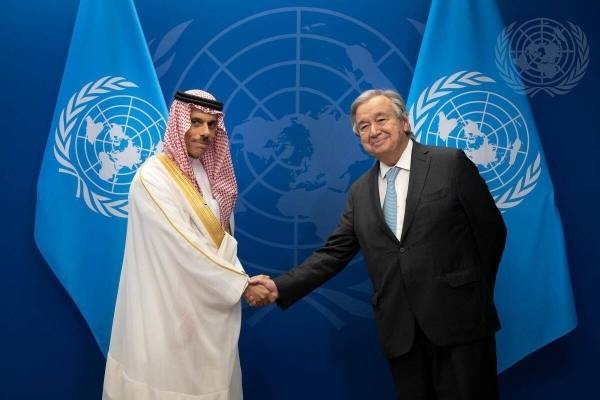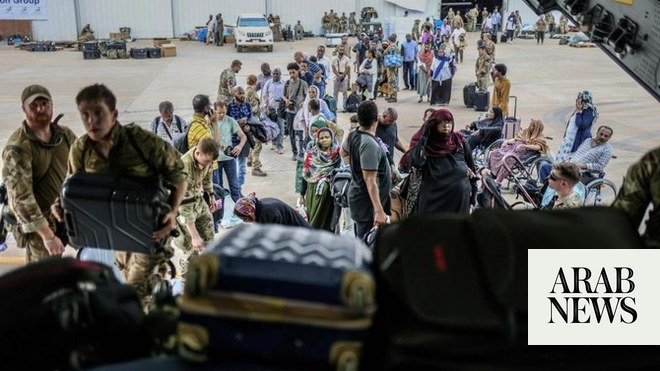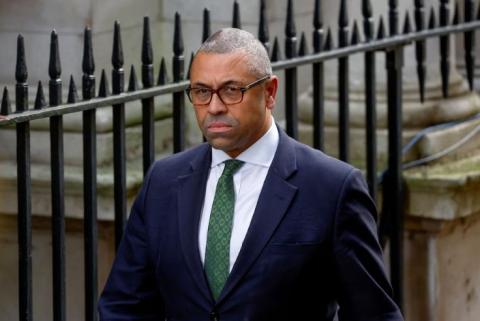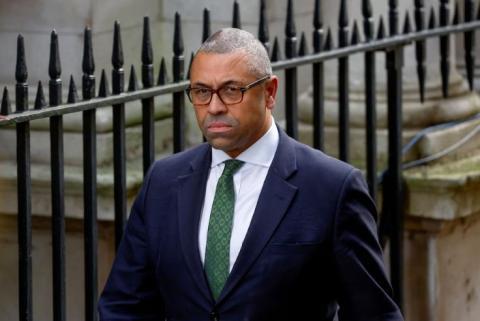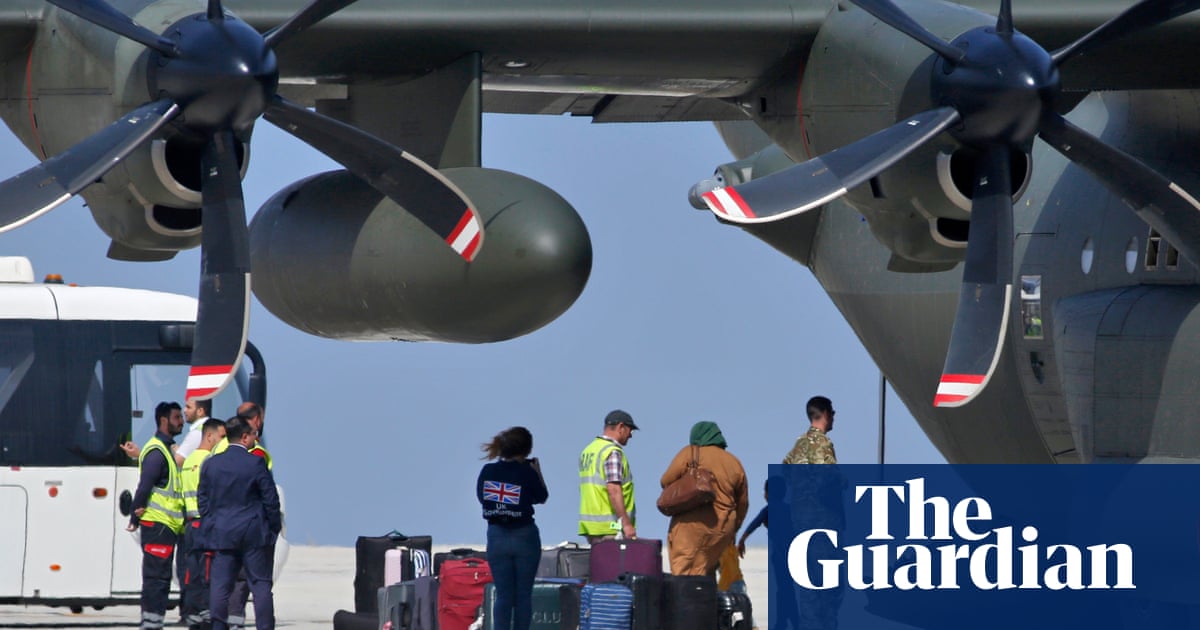
Britain could continue running evacuation flights from Sudan once the current three-day ceasefire expires on Thursday night, the army officer in charge of the rescue said, as the first planeload of civilians rescued from the country’s civil war arrived at Stansted airport.
Brig Dan Reeve said the airlift from a base north of Khartoum would continue as long as conditions were safe, including possibly beyond the ceasefire period, if people could still travel there.
“The ongoing operation … is not conditional on that ceasefire holding,” Reeve said, adding that the Wadi Seidna airbase was protected by 160 British troops and was in an area securely held by the Sudanese army even though fighting had been going on in Khartoum.
However, on Wednesday night, the foreign secretary, James Cleverly, said the UK “cannot guarantee” how many further evacuation flights will depart once the ceasefire ends.
The Foreign Office said that six UK flights have so far evacuated 536 people – including Britons and non-Britons – with further flights expected from the airfield, taking civilians from other countries if there are spare places available.
But fighting flared up outside the capital despite the ceasefire, and it was not clear that everybody eligible would feel safe to travel, in a chaotic situation in which phone and internet networks were working intermittently and money and petrol were in short supply.
A decision on when to end the evacuation would ultimately be made by the prime minister, Reeve said, but Ministry of Defence officials stressed safety was paramount. People were being advised to head to Wadi Seidna as soon as possible, as the RAF evacuation could not last indefinitely.
A UK student attempting to flee Sudan said she did not have enough petrol to make the dangerous one-hour drive from the outskirts of Khartoum to the airstrip. “I’m trying to get there. But the problem is the vehicles have no gas, and the petrol stations are empty,” said Samar Eltayeb, 20, from Birmingham.
Most people had been able to travel to the airfield safely, Reeve said, but he recognised the situation was dangerous, with frontlines unclear. Britons being rescued had described young soldiers holding guns with a “Call of Duty” mindset, taking “potshots at anyone”.
RAF transport planes flew for three to four hours to Larnaca, Cyprus, and from there people were put on specially chartered planes bound for the UK. The first of those landed at London’s Stansted airport in the mid-afternoon, with others expected to follow.
People arriving in the UK said they were glad to be back home, but some said they thought the initial response was slow. Shama, one of the first off the plane, expressed relief she was no longer in danger, and said of the UK response: “It was slow, but we’re here.”
Some of the evacuees who had arrived on the first flights had spent Tuesday night in an army training camp in Larnaca, Cyprus’s foreign ministry spokesperson said.
Britain has been criticised for lagging behind Germany and France in rescuing civilians, choosing only to rescue two dozen embassy staff on Sunday, and allowing Germany to take over the airfield so it could complete a rescue of 700 people.
The commanding officer said military engineers were working “to improve the safety of the airstrip by mending some of the damage to it” but rejected earlier reports that the runway at the Wadi Seidna airfield was beginning to break up.
The A400M Atlas and Hercules transports that the UK had been using were “designed to run, to land on sandy beds”, Reeve added. He said the airfield, described as the size of a small regional airport, was in a better condition than that.
Britain was in the process of taking air traffic control of the airbase from Germany and plans to run five flights daily for a time to give more of the 2,000-plus British nationals a chance of evacuating.
Germany concluded its own evacuation of diplomats and civilians overnight on Tuesday, bringing 700 people from more than 30 countries to safety, while France had rescued more than 500 from 41 countries earlier this week.
However, the US, which rescued its diplomatic staff over the weekend, has not organised a civilian rescue of the estimated 19,000 of its citizens in the war-hit country.
Britain began its own civilian rescue on Tuesday, with only British passport holders being eligible for evacuation, plus their spouses and children, as long as they too have the right to enter the UK.
Downing Street said it was not yet willing to allow NHS doctors who were not British citizens to be allowed on the RAF planes. Several are thought to have travelled to Sudan for Ramadan and Eid, although their status is under review.
The UK government is considering other options, including a possible seaborne evacuation from Port Sudan, 500 miles from the capital, particularly if the air route is closed off. The defence secretary, Ben Wallace, said on Tuesday he had asked frigate HMS Lancaster to sail to the port city to potentially assist.




